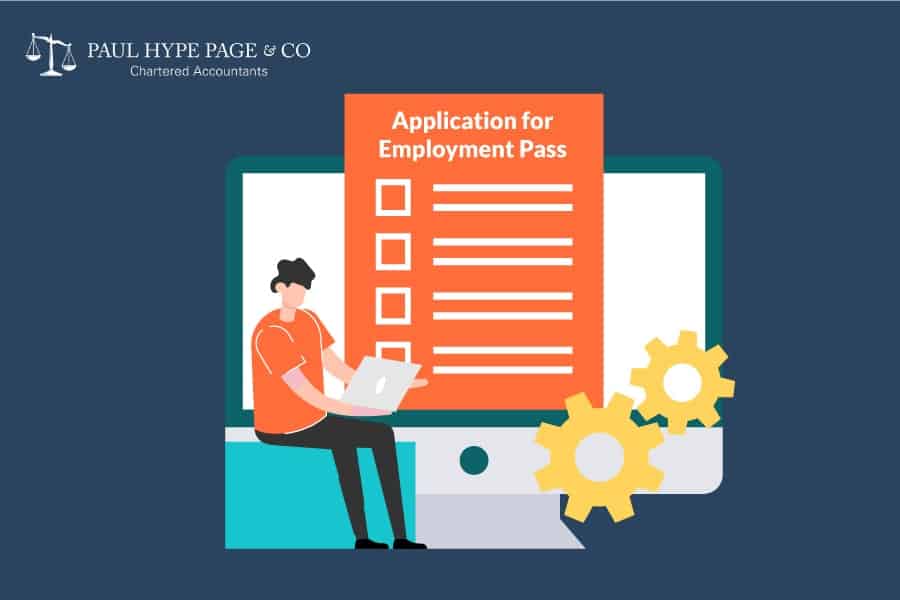Outline
Employees are the heart of your business. After incorporating your company in Singapore, the next step is to start your recruitment process and hire the right talents. There are certain requirements when you decide to hire foreign talents in Singapore.
What is the Singapore Employment Act?
Before diving into the actual process of hiring a foreign talent, it is important to understand the Singapore Employment Act. This Act is the main labour law that manages the relationship between employers and employees in the Singapore and provides the fundamental needs and working conditions for the employees.
The Employment Act also prevents employers from mistreating their employees regarding their work rights. This regulation is stated clearly and signed off by both the employer and employees in their employment contract.
There are some key features of the Employment Act:
| Key Features | Managers / Executives | Employees earning >S$2,000 monthly | Employees earning <S$2,000 monthly |
|---|---|---|---|
| Maximum Working Hours Weekly | As per the contract, commonly 40-50 hours | As per the contract, commonly 40-50 hours | 44 hours |
| Maximum Days of Work Weekly | As per the contract, commonly 5 days | As per the contract, commonly 5 days | 6 days |
| Overtime | As per the contract, commonly Not required | As per the contract | Maximum of 72 hours monthly, employees to be paid at 1.5 times the basic hourly rate |
| Central Provident Fund (CPF) for PRs | Required | Required | Required |
| Singapore Citizens Annual Bonus | As per the contract, equivalent to 1-4 months of salary | As per the contract, equivalent to 1-4 months of salary | As per contract |
| Paid Annual Leave | As per the contract, commonly 15 days | As per the contract, commonly 15 days | 1st year – 7 days 2nd year- 8 days 3rd year- 9 days (Increased to 14 days) |
| Paid Sick Leave | As per the contract, commonly 14 days annually | As per the contract, commonly 14 days annually | Outpatient: 5-14 days (employment period served) Hospitalized: 15-60 days (employment period served) |
| Paid Maternity Leave (if applicable) | 16 weeks First 8 weeks paid by the employer for 1st two confinements | 16 weeks First 8 weeks paid by the employer for 1st two confinements | 16 weeks First 8 weeks paid by the employer for 1st two confinements |
| Paid Annual Childcare Leave (Until the child turns seven years old) | 6 days 1st three days paid by the employer | 6 days 1st three days paid by the employer | 6 days 1st three days paid by the employer |
| Unpaid Infant Care Leave (Until the infant turns two years) | 6 days | 6 days | 6 days |
| Probation Period | As per the contract, commonly 6 months | As per the contract, commonly 6 months | As per the contract, commonly 6 months |
| Paid Public Holidays | 11 days | 11 days | 11 days |
| Medical Insurance | As per the contract | As per the contract | As per the contract |
| Termination Notice Period | As per the contract, commonly 1-3 months | As per the contract, commonly 1-3 months | As per the contract, commonly 1-3 months |
How Do I Employ a Foreigner in Singapore?
There are a few requirements when hiring foreigners in Singapore:
Types of Working Visas Available in Singapore
After noting these pointers, the next step is understanding the types of working visas available in Singapore. There are generally 3 categories of working visas that will be issued to foreigners.
| Work Visa Type | Education | Salary Range | Scope of Work |
|---|---|---|---|
| Employment pass, EntrePass & Personalised Employment Pass | Degree & above | Above S$5,000 | Professional work such as Engineering, Technology, Management consulting, Medical, financial field and many others |
| S Pass | Degree or diploma or technical certificates | Min. S$3,000 | Executive work such as Admin, Operational and more routine base type of work any industries |
| Work Permit | No min requirement | No min requirement | Foreign workers provide physical labour work working in the construction, manufacturing, marine shipyard, process, or services sector. |
Restrictions on Hiring Foreigners in Singapore
When hiring foreigners, you should also note the quota for doing so. The Singapore government introduced the Dependency Ratio Ceiling (DRC) to encourage companies to hire locals. DRC will limit the number of foreigners in a company and is calculated for identifying the maximum permitted ratio of foreign workers a company can employ.
If you’re not sure on how many foreign talents you are allowed to employ, you can easily calculate it on the Ministry of Manpower website.
Guidelines for Recruitment
Employers are advised to adhere to progressive and fair Human Resource (HR) practices when finding employees as Singapore’s workforce is diverse in terms of age, gender, and ethnicity. The guidelines are as follows:
Attracting & Retaining Talents Post-Pandemic
The Covid-19 pandemic has changed how we work, with the rise of hybrid and remote working models. Virtual offices are becoming more popular, giving employees the flexibility of working from anywhere while providing physical spaces and office-related services when needed.
Here are some ways to attract and retain talents, especially in these times:
FAQs
Yes, you must continue paying your employees with Work Permit even though you don’t have jobs for them. Work Permit holders should receive a fixed monthly paid that is stated in their WP application form.
No, the legal age to work in Singapore is 17 years old and above. However, exception applies to certain cases, check out MOM website for details.
Questions an employer should ask before hiring an employee are:
- Do I have a good understanding of the labor laws that binds me and my employee?
- Do I know the formalities for hiring a local or foreign employee?
- Are there guidelines for recruitment, do I know what I ought to do or not do?
- How much have I set aside to hire an employee, what are the acceptable wages?
- Am I mandated to any funds, contributions, or levies?
- Is there a difference in hiring part-time, full-time, or contract employees?
It depends on the nature of their work. There are three type of work visa in Singapore: work permit, S Pass or an Employment Pass (EP).
- EP: Skilled workforce such as doctors, software engineers, and R&D specialists.
- S Pass: Semi-skilled workforces such as chefs, administrative professionals, and technicians
- Work Permit: Unskilled workforce such as construction workers and domestic workers.
About The Author
Share This Story, Choose Your Platform!
Related Business Articles




